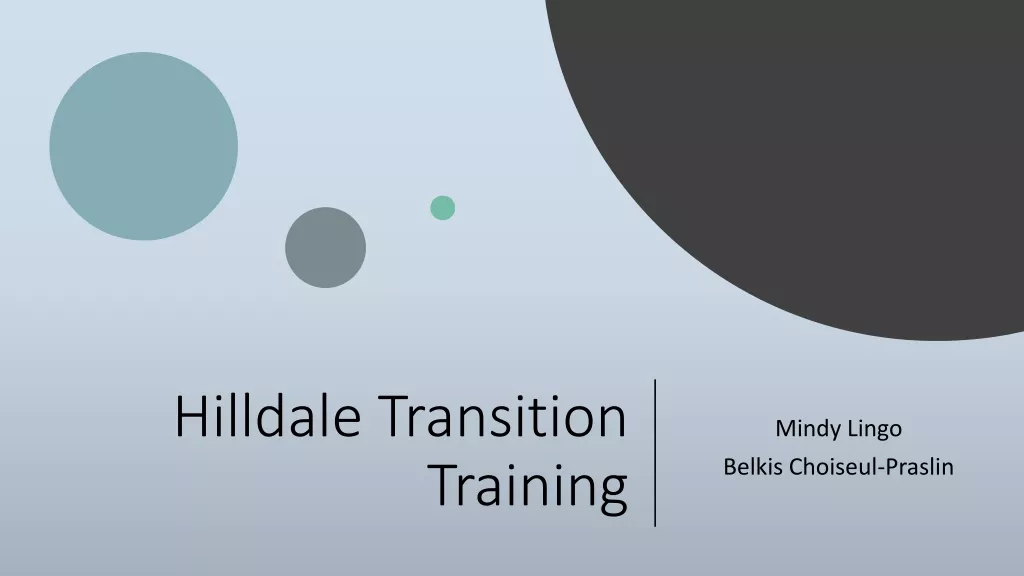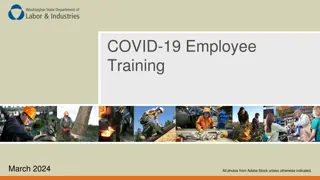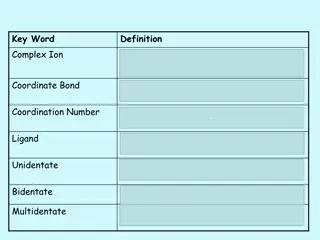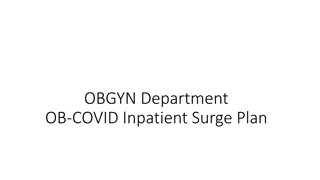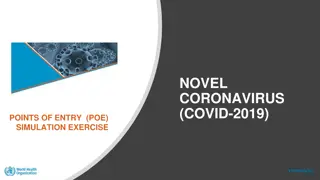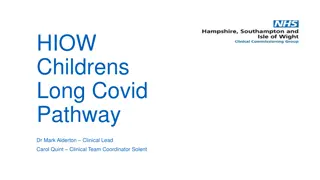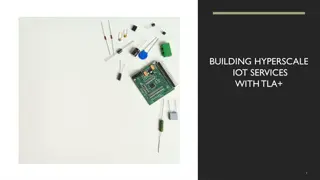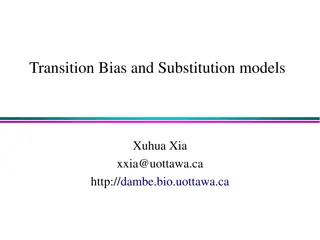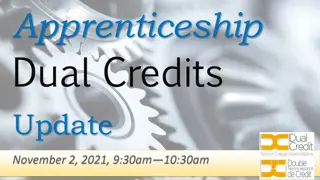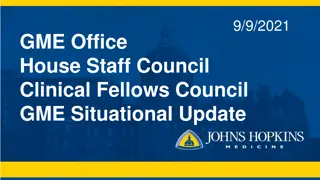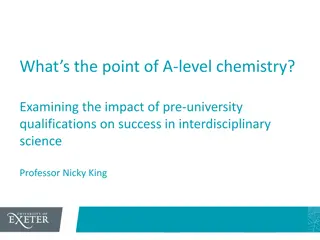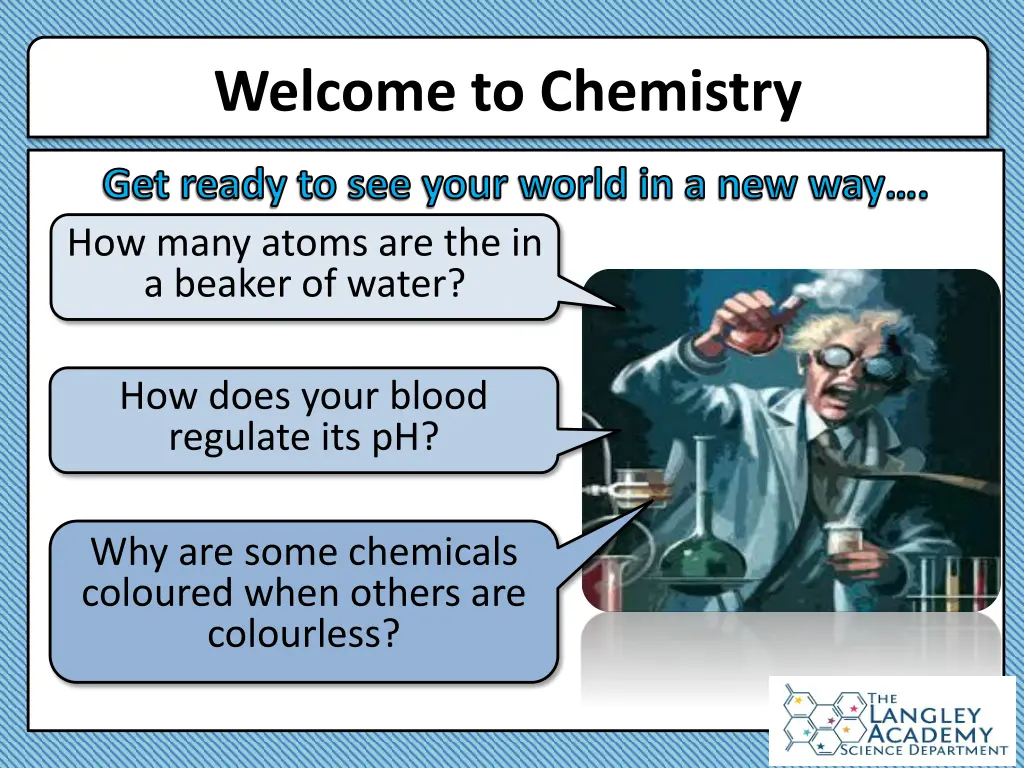
Unveiling the World of Chemistry
Explore the wonders of chemistry, from the number of atoms in a beaker of water to the pH regulation in blood and the colors of chemicals. Delve into practical investigations, the AQA Chemistry Course, and assessment models for both internal Year 12 exams and external Year 13 exams. Get a glimpse of what you will study, including topics in Physical chemistry, Inorganic chemistry, Organic chemistry, and more.
Download Presentation

Please find below an Image/Link to download the presentation.
The content on the website is provided AS IS for your information and personal use only. It may not be sold, licensed, or shared on other websites without obtaining consent from the author. If you encounter any issues during the download, it is possible that the publisher has removed the file from their server.
You are allowed to download the files provided on this website for personal or commercial use, subject to the condition that they are used lawfully. All files are the property of their respective owners.
The content on the website is provided AS IS for your information and personal use only. It may not be sold, licensed, or shared on other websites without obtaining consent from the author.
E N D
Presentation Transcript
Welcome to Chemistry Get ready to see your world in a new way . How many atoms are the in a beaker of water? How does your blood regulate its pH? Why are some chemicals coloured when others are colourless?
What will the PowerPoint cover? 1. The AQA Chemistry Course Practical Investigation-choose an experiment to do at home! 2. 3. Why Chemistry? 4. The Summer Task.
What you will study: The specification has been developed in consultation with universities and UK teachers.
What you will study:
Assessment model Internal Year 12 exams (AFL & UCAS ) Paper 1 written exam: 1 hour 30 minutes 80 marks 50% of the year 12 exams Paper 2 written exam: 1 hour 30 minutes 80 marks 50% of the year 12 exams 160 marks 3 hours total assessment time A specified minimum weighting for maths at Level 2 of 20% Synoptic assessment in both papers Practical based questions included in both papers Relevant Physical chemistry topics Inorganic chemistry Relevant practical skills Relevant Physical chemistry topics Organic chemistry Relevant practical skills 65 marks of short and long answer questions 15 marks of multiple choice questions 65 marks of short and long answer questions 15 marks of multiple choice questions
Assessment model External Year 13 exams Paper 3 written exam: 2 hours 90 marks 30% of A-level Paper 1 written exam: 2 hours 105 marks 35% of A-level Paper 2 written exam: 2 hours 105 marks 35% of A-level Synoptic Any content Any practical skills Relevant Physical chemistry topics Inorganic chemistry Relevant practical skills Relevant Physical chemistry topics Organic chemistry Relevant practical skills 40 marks of questions on practical techniques and data analysis 20 marks of questions testing across the specification 30 marks of multiple choice questions 105 marks of short and long answer questions 105 marks of short and long answer questions
Practical skills-Year 12 1. Make up a volumetric solution and carry out a simple acid base titration. 2 Measurement of an enthalpy change. 3 Investigation of how the rate of a reaction changes with temperature. 4 Carry out simple test-tube reactions to identify: cations Group 2, NH4+ anions Group 7 (halide ions), OH , CO32 , SO42 5 Distillation of a product from a reaction. 6 Tests for alcohol, aldehyde, alkene and carboxylic acid.
Practical skills 7 Measuring the rate of reaction: by an initial rate method by a continuous monitoring method 8 Measuring the EMF of an electrochemical cell. 9 Investigate how pH changes when a weak acid reacts with a strong base and when a strong acid reacts with a weak base. 10 Preparation of: a pure organic solid and test of its purity a pure organic liquid 11 Carry out simple test-tube reactions to identify transition metal ions in aqueous solution 12 Separation of species by thin-layer chromatography
Practical Investigation https://edu.rsc.org/resources/collections/global-experiments Follow this link. There are several experiments that were run by the Royal Scociety of Chemistry on a global scale. They have now all closed so you cannot upload data- but there is nothing to stop you choosing one of the experiments and sharing the results with me. You can even send in pictures & I will then share them with the rest of our class! This is optional but .it could be fun .give it a go!
Why Chemistry http://www.rsc.org/careers/future/ It s worth exploring the Royal Society ofChemistry Website over the summer (http://www.rsc.org). Now is an opportunity to explore the scientific community you are joining on social network, the internet is full of Science and Chemistry blogs, twitter accounts and podcasts. A quick search for some key terms that interest you can reveal some true gems, for those unsure where to start www.compoundchem.com is a fascinating blog and The Infinity Monkey Cage is a great podcast.
Summer Home learning Thee accompanying letter is more detailed but 1. Read and complete the questions on the scanned sheets. 2. Read through the AQA Transition Pack booklet you have been given and complete the activities. 3. Then complete the Key Facts to Find and Learn worksheet. If you read the letter you will find out where to find answers! You will be tested on the Key Facts to Find and Learn during your first Chemistry lesson in September. The test may also include some of the facts from the AQA Transition Pack And yes the test is important- otherwise we wouldn t ask you to do it!

